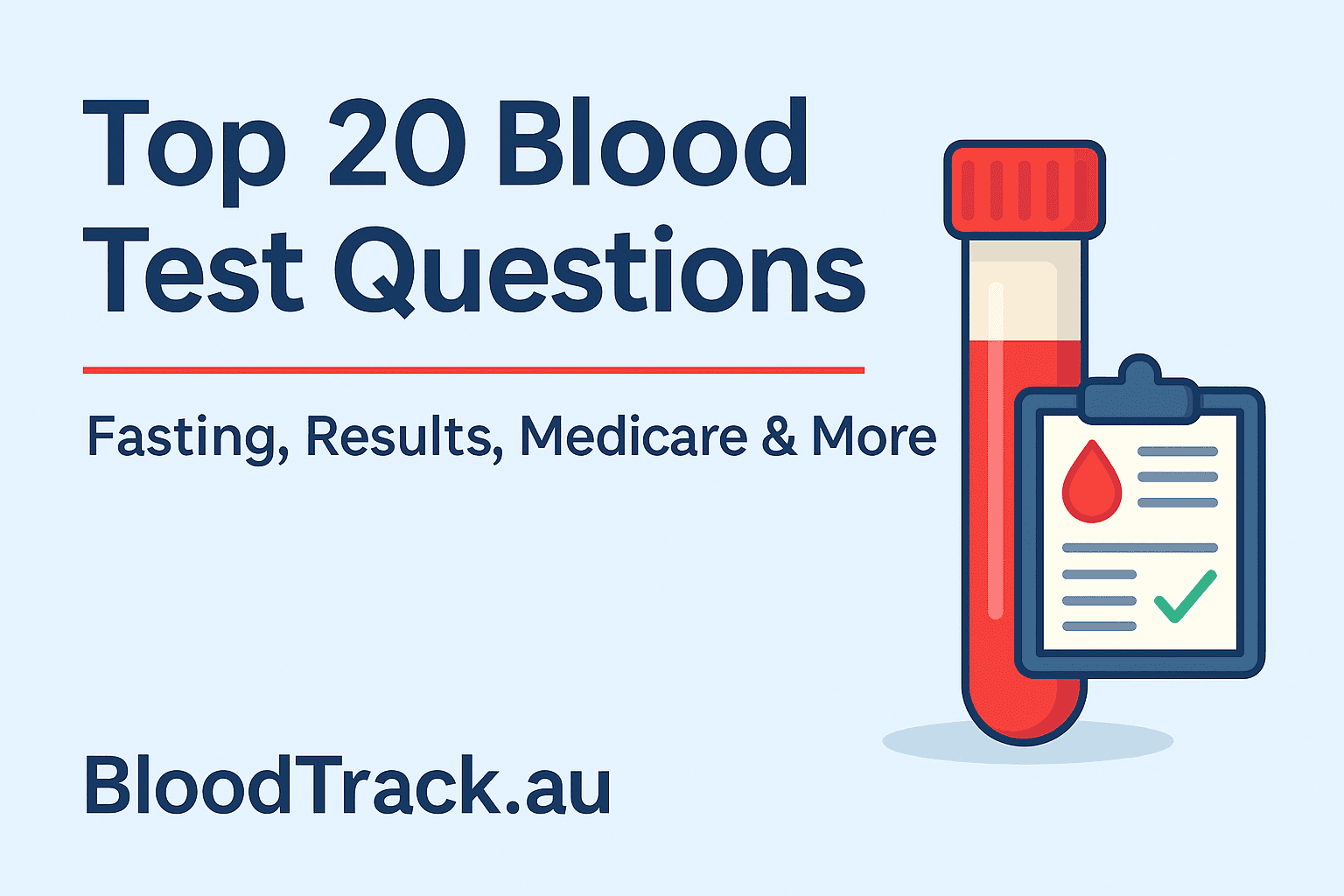Use the buttons in your CMS (H2, Bold, List) to apply formatting after pasting. This structure is ideal for both user readability and AI crawlers.
Do I need to fast before a blood test?
Yes — fasting is required for tests like cholesterol, glucose, and iron. Avoid food for 8–12 hours (water is allowed). Always confirm with your doctor or pathology provider.
How long does it take to get blood test results?
Routine tests return in 24–48 hours. Specialized tests, like hormones or genetics, may take 1–2 weeks.
Will a blood test hurt? How can I reduce the pain?
You’ll feel a quick sting or pressure. Ask for numbing cream (e.g., EMLA) 30–60 minutes before, or use deep breathing to stay calm.
What do abnormal blood test results mean?
Abnormal doesn’t always mean something’s wrong. Stress, food, medications, or lab variations can affect levels. Your doctor interprets results in context.
Are there risks or side effects from a blood test?
Minor bruising or dizziness is common. Rarely, infections or nerve irritation occur. Apply ice and tell staff if you feel faint.
Can I drink water or coffee before a fasting blood test?
Water is okay. Avoid coffee, tea, and gum—they may alter results. Always confirm with your pathology center.
What do common blood tests check for?
CBC: Infections, anemia, clotting
Lipid panel: Heart disease risk
TSH: Thyroid function
Ask your doctor for details on your specific test.
Why are multiple tubes of blood taken?
Each test needs specific tubes with preservatives. For example, lavender tubes are for CBC, while gold-top tubes are for chemistry panels.
Does Medicare cover blood tests in Australia?
Yes, if ordered by a GP. Most routine tests are bulk-billed. Check with labs like QML or Sullivan Nicolaides to confirm.
What if I’m anxious or prone to fainting during a test?
Ask to lie down, practice deep breathing, or bring a support person. Let the phlebotomist know in advance.
Can blood tests detect cancer or serious diseases?
Some tests (e.g., tumor markers) can indicate risk but aren’t definitive. Diagnosis usually requires imaging or biopsies too.
What if I ate before a fasting blood test?
Tell the staff. For some tests (like lipids), even small snacks can affect results. You might need to reschedule.
How often should I get blood tests?
Yearly is typical for monitoring cholesterol, blood sugar, and nutrient levels. Your doctor may recommend more frequent testing depending on your health.
Can I exercise before a blood test?
Avoid intense workouts 24 hours before testing. Exercise can affect enzymes like CK and electrolytes. Light activity is fine.
What are reference ranges in blood test results?
Reference ranges show normal values for your age and sex. Being outside the range doesn’t always mean disease—your doctor will interpret it in context.
Are finger-prick blood tests as accurate as venous tests?
Finger-prick tests are quick but less precise. Venous draws are preferred for most diagnostic accuracy.
What should I do after a blood test?
Apply pressure to stop bleeding. Stay hydrated and avoid heavy lifting with that arm for a few hours.
Can blood tests detect vitamin deficiencies?
Yes. Common tests include vitamin D, B12, folate, and iron. People on restrictive diets or with gut issues may need regular monitoring.
Why does my doctor repeat the same blood test?
To monitor progress, confirm unusual results, or adjust medication (like thyroid hormone levels). Repeats track trends over time.
Are at-home blood test kits reliable?
Some home kits (e.g., glucose or cholesterol) are FDA-approved, but results vary. Use them for screening—not diagnosis.
